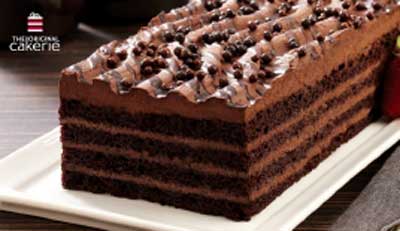If you consistently consume products from the grocery store, then chances are you’ve eaten a product with added flavours. Any product that lists natural or artificial flavours on the label have had flavours added to them. Have you ever considered who adds the flavours?
A lollipop without the added flavour is simply a piece of hard sugar with sweetness. It’s when you add flavours magical things happen and the possibilities are endless. A flavourist combines different flavours to create a perfect blend that puts magic in the treat.
You could even say that flavourists are magicians because they’re a big part of why food is tasty. Below are the facts that will show you how they achieve these feats.
Flavourists develop flavours for food products

A flavour chemist (also known as a flavourist) works with natural and synthetic-approved chemicals to develop flavours for a variety of food products.
They work with a wide selection of compounds like extracts, oils and flavour chemicals to create the perfect combination based on customer needs. When working with these compounds, they take into consideration how affordable, safe and fitting the components are for an application.
Many of the products you consume have added flavours such as beverages, yogurts and candies. During the food production process, steps could occur that cause the food to lose its aroma compounds. Flavourists help food reclaim what was lost, as consumers prefer food with aroma components added.
Flavourists can be employed to different areas in the industry
Traditionally, flavourists are employed to a company (also known as a “flavour house”) which exclusively produces and sells flavour mixtures to other companies.
When a customer is in need of a particular flavour to be developed, they approach multiple “houses” and pick the one they think is best. However, this is not the only place a flavourist can be employed.
Alternatively, a flavourist can be employed in the Research and Development department of a food processing company. These companies are generally larger because they have the funds to employ specialized staff. However, this route is not as common as the former.
Flavourists spend a lot of time in the lab
Flavourists are a specialized type of chemist who spend an extensive amount of time in the laboratory. The development of flavours requires a chemist to blend and analyze chemicals, using techniques such as high-performance liquid chromatography (HPLC). HPLC helps a flavourist determine what flavour chemicals are present in a food and to how to mimic them in a mixture.
Another reason why flavourists spend a lot of time in the lab is because of the specifics of their customer’s request. A customer may have an exact taste in their mind and a flavourist must match it. This can be a difficult task when a flavourist doesn’t know what’s going on in their heads. Try explaining the flavour of hot Cheeto to someone who has never tasted it before! It can take up to 80 or more tries to get a flavour right!
Flavourists begin with a science degree
Generally, flavourists begin their careers with a bachelor’s degree in food science, chemistry or food engineering. These programs provide the foundational knowledge needed to work in a laboratory setting.
General lab courses teach students how to use the chemical instrumentation needed to analyze and create flavours.
There are some flavourists who also possess master’s degrees and PhDs because it strengthens their technical knowledge of flavour chemistry. However, this is not a requirement. These postsecondary degrees usually are for those who wish to teach or conduct fundamental research.
Becoming a certified Flavourist takes time
A flavour chemist certified with the Society of Flavour Chemists (SFC) must complete an extensive amount of work, starting with an approved seven-year apprenticeship and a written test. An apprentice learns how to recognize and remember flavours in mystery solutions, as well as how to differentiate concentrations of sweetness at the minute level.
After 5 years of apprenticeship, candidates are required to take a written and oral test. An examiner tests the applicant’s knowledge of flavours based on a general syllabus provided by the SFC. They are considered successful if they pass with a minimum of 80%.
Afterwards, they are considered a junior flavourist and train for an additional two years.
There is one final examination that a junior flavourist must take to become a become a certified flavourist. During these tests, they must achieve a minimum of 90% to attain the certified membership into the Society of Flavour Chemists.
Keep in mind, the term “flavourist” is sometimes loosely used despite the amount of time it takes for someone to become one. Therefore, it is possible to become a flavourist despite never having an extensive apprenticeship. However, you would not be considered certified.
Flavourists need to follow food trends
The world of flavours changes often, and it is the customers’ tastes which dictate their movements. Take, for example, the not-so-recent development of the consumer demand for natural flavours. There was a point in time when many consumers never considered whether a flavour was natural or artificial. This was because many consumers assumed that all the ingredients in their foods were derived from already natural sources.
However, as clean eating started to become more popular several years ago, so did a consumers knowledge of reading food labels. As a result, flavorists had to rethink the sources of where the flavour chemicals they work with came from.
So how do flavourists follow trends such as these? A flavourist employs multiple ways, such as attending conferences, keeping up with online food trends and looking at competitors to stay on top of food trends.
Flavourists have intuition

Read the full article here
Flavourists need to have a bit of intuition when speaking with customers. Many trained professionals in the food industry lack the language to explain what they want.
Think about the flavour of ginger – can you describe it with words other than spicy or sharp-tasting? With the right training, flavourists can detect other tastes within ginger such as lemony, woody, earthy and warm.
Understanding the particulars of the customer’s request is essential to the job. Building a relationship and familiarizing yourself with the customer’s lead to levels of understanding that strengthens a flavourist’s intuition.
It’s impressive how a flavourist can figure out what a customer wants without them explicitly saying it!
Flavourists are creative, strong in math and have a good memory
As with any occupation, there are certain sets of skills which will aid you better than others. For a flavourist, these skills include:
- Having a good memory – Flavourists work with hundreds of different chemicals, all with different tastes and aromas. When tasting, they must identify what flavours are present and what chemicals represent the corresponding flavour notes. Therefore, they must have a good memory. It would take too much time to constantly refer to a manual!
- Strong mathematical skills – Chemists make multiple dilutions of solutions based on the potency of a chemical. Figuring out these dilutions requires using some math skills, an essential skill for flavourists.
- Be creative – There is no recipe book for every single flavour out there, so it is up to the flavourist to come up with what is best. Two flavourists can create a flavour which tastes identical which is made up of different components.



